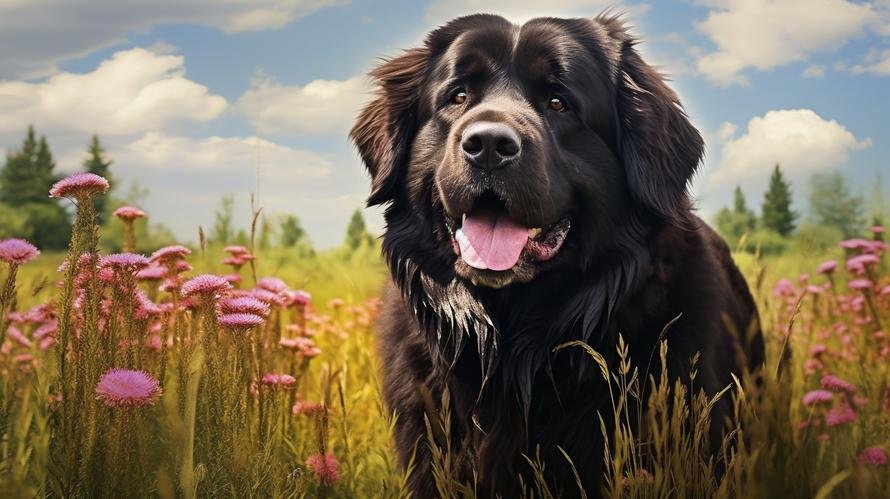In the remote corners of Canada, there lies an island claimed by rocky cliff sides and royal blue waters – Newfoundland. From this rugged, salt-of-the-earth land originated a breed of dog that manifests the very spirit of this island – the loyal, brave, and hardworking Newfoundland dog, often fondly referred to as the ‘gentle giant’.
Did you know? The Newfoundland dog, with its large and robust build, striking mane, and a heart as vast as its homeland, was initially bred for water rescue. Its waterproof coat, webbed feet and sheer strength gave it the ability to pull nets for fishermen, haul wood from forests and, most remarkably, save people from drowning!
Now, you’re probably thinking, “That’s all fascinating, but what does it have to do with whether my Newfoundland should eat grain-free food?” To answer that question, it’s essential to understand a fundamental secret to the Newfoundland dog’s exceptional health and vitality – its diet. Like any superhero, our canine comrade requires the right fuel to stay fit, active, and ready to rescue! So, let’s shed some light on the much-debated topic of whether a Newfoundland dog should eat a grain-free diet. This way, you can corral all that information and make an informed decision about how best to feed your furry friend.
For starters, humans have only recently started to include grains in their pet’s diets. This shift largely occurred in the 20th century when commercial pet food became readily available. Before that, dogs frequently ate a diet composed of meats and vegetables, much akin to what their wolf ancestors would consume in the wild.
Some people might argue that dogs have evolved alongside humans and thus adapted to digest grains. Still, it’s important to note that the primary role of grains in commercial pet food is often as a filler – to bulk up the food and keep costs low.
However, grains are not inherently harmful to dogs. In fact, quality grains like quinoa, barley, or brown rice can provide a good source of fiber and energy. The crucial consideration is the type of grain used and how it is prepared.
One main concern about grain-free diets arises from recent studies that suggest a link between grain-free diets and Dilated Cardiomyopathy (DCM), a severe heart condition, in dogs. The prevailing theory is that certain ingredients used in grain-free diets – specifically legumes like peas, lentils, and other pulses – might interfere with dogs’ ability to absorb taurine, an essential amino acid that supports heart health.
That being said, it’s essential to understand that Newfoundland dogs are predisposed to certain health conditions due to their sizable breed. Issues can range from hip dysplasia to gastric dilatation-volvulus (GDV) or “bloating”. Therefore, grain or grain-free, the best diet for your Newfoundland dog is one that is balanced, complete, and specially tailored to the needs of your pet.
Remember, your Newfoundland dog – with its resilient constitution and energetic spirit – requires optimal nutrition to support its large size and active lifestyle. Rather than completely ruling out grains, consider including high-quality complex carbs like sweet potatoes, brown rice, or even oats within their diet. Unlike simple carbs such as corn or wheat, these complex carbs release energy slowly and are less likely to cause spikes in blood sugar.
When it comes to deciding between grain and grain-free diets for your Newfoundland dog, it can be helpful to consult a professional. A veterinarian or a certified pet nutritionist can evaluate your dog’s overall health, lifestyle, age, and exercise level to suggest the best diet plan.
In conclusion, should your Newfoundland dog eat grain-free? There is no one-size-fits-all answer. It most certainly depends on the specific health requirements and lifestyle of your beloved pet. Remember, the goal is not to feed a dog like a human but to ensure they get a diet in line with their unique doggy needs. Once you’ve unraveled your Newfoundland dog’s dietary needs, you’re well on your way to contributing to a long, healthy, and vibrant life for your ‘gentle giant’, the pillar of strength from Newfoundland.



